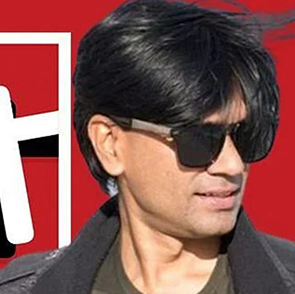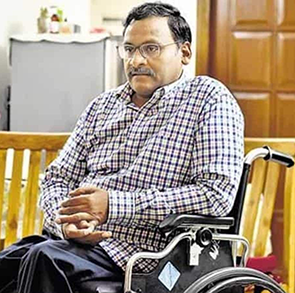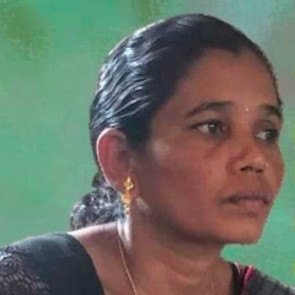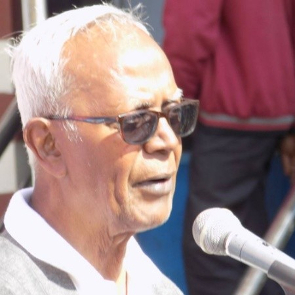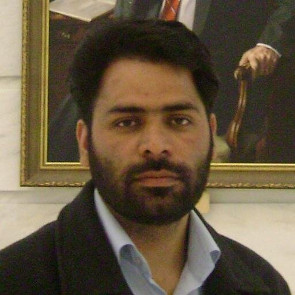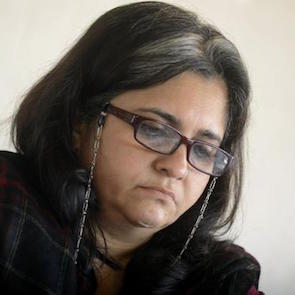Statement - India: EU Must Speak Out on Reprisals Against Human Rights Defenders in India
Download the PDF Statement Here
Ahead of the European Union (EU)-India human rights dialogue scheduled for 15 July 2022, Front Line Defenders today called on the European Union to take a strong position on the growing human rights crisis in India, especially reprisals against human rights defenders for their work. For this dialogue to be effective, the EU must ensure clear and public benchmarks for its engagement on human rights concerns with India, and press Indian authorities on the treatment of human rights defenders, especially those jailed on baseless and politically motivated charges.
The last dialogue on 12 April, 2021, ended without tangible outcomes for the protection of human human rights defenders. Since then, India has continued to violate human rights and punish defenders without effective censure from the international community. Of the 16 persons initially jailed in the Bhima Koregaon 13 defenders remain in jail at the time of writing, denied basic rights. In July 2021, 84-year-old Jesuit priest and human rights defender Stan Swamy died in custody in July 2021. Human rights defenders in Delhi were also jailed under the Unlawful Activities Prevention Act (UAPA) for speaking out against the Citizenship Amendment Act. Six defenders, all from the Muslim minority community remain jailed to date.
Prominent human rights defenders who dared to challenge the State on its human rights record, and campaign for justice, have been vilified in the media and arrested. On 25 June 2022, woman human rights defender Teesta Setalvad was taken into custody by the anti-terrorism squad of the Gujarat police from her home. The arrest took place a day after the Indian Supreme Court dismissed a petition seeking justice for the victims of the 2002 Gujarat riots, in which Teesta Setalvad had intervened. The woman human rights defender is now being punished for seeking justice on behalf of riot victims, and accused of conspiracy against Prime Minister Narendra Modi and other officers.
Two days after Teesta Setalvad’s arrest, on 27 June, 2022, human rights defender Mohammad Zubair, founder of Alt News, a fact checking website, was arrested based on a tweet published four years prior. The arrest, on claims of hurting religious sentiments is based on a complaint/tweet tagging the police from an account which has since been deleted. In the weeks prior, the human rights defender had exposed hate speech against the Muslim minority community by senior ruling party officials which led to national and international outcry. While the party has since distanced itself from the said officials, reprisals against those seeking accountability or exposing violations continues.
In Kashmir, human rights defenders continue to face serious threats, are labelled as terrorists, and risk raids and arrest including under the UAPA. The arrest of Kashmiri human rights defender Khurram Parvez, on 22 November, 2021, on terror funding charges is an extremely dangerous attempt to silence human rights defenders and delegitimize and criminalize their important work. The defender’s home was among those raided in October 2020 where simultaneous raids were carried out on several human rights organizations and defenders’ homes in Kashmir.
India’s anti-terror law, the UAPA, is routinely used to silence and incarcerate defenders and journalists. Muslim, Dalit and indigenous rights defenders are especially vulnerable to this abuse. Many of those arrested in the Bhima Koregaon case, are those advocating and campaigning against human rights violations against Dalit and indigenous communities. Defenders who speak out against mass arrest, and arbitrary detention of Dalit and indigenous persons are themselves jailed and labelled as terrorists. Indigenous woman human rights defender Hidme Markham who has campaigned on land rights, environment, against extractives and arbitrary detention, was arrested from a women’s day even on 9 March, 2021, and jailed under the UAPA. Journalist and human rights defender Siddique Kappan continues to be jailed under UAPA in Uttar Pradesh for his attempts to report on Hathras gang rape and murder of a 19-year-old Dalit girl. In all the above-mentioned cases, defenders are incarcerated without trial for years.
G. N. Saibaba, a Delhi University professor, advocate on Dalit and indigenous rights, was convicted under the UAPA and jailed in 2017. He is ninety percent disabled due to polio and other serious health concerns and his condition has severely deteriorated in jail, also due to Covid-19.
The Foreign Contributions Regulation Act (FCRA) further amended in 2020, has tightened the Indian state’s grip on human rights organisations and their freedom to access and utilize foreign funds. The law has been used against hundreds of human rights organisations, to suspend, cancel, deny renewing their license and initiate criminal proceedings against them. Amendments to the Act have worsened the conditions, opening the door for intrusive investigations by authorities into the accounts and functioning of NGOs. The proceedings initiated by the Central Bureau of Investigation (CBI) against the human rights organisation People’s Watch, in a matter settled by the Delhi High Court in 2014, is one example of the abuse of this law to punish and prevent them from carrying out their work.
The scale of the crackdown on human rights and human rights defenders in India can no longer be met with silence. Blatant disregard for national and international commitments on human rights and the continued targeting of human rights defenders, is enabled by the silence of the international community. India as a member of the United Nations Human Rights Council and a key partner in international spaces must be held to a higher standard. Indian human rights defenders who continue to contribute to the cause of human rights locally, nationally, and in the world, must be supported with real and effective solidarity.
The EU and its member states have pledged to speak out against any attempt to undermine respect for universality of human rights and to throw their full weight behind courageous human rights defenders throughout the world. The re-launched human rights dialogue between the EU and India provides a real opportunity to better protect defenders, and hold India to concrete deliverables. The release of human rights defenders in jail, ending reprisals including legal persecution, abuse of anti-terror laws and financial regulations must be included to ensure the dialogue has meaning and does not serve to further enable and embolden the Indian authorities crackdown.
For further information please contact Claire Ivers – Head of EU Office and Global Advocacy - civers@frontlinedefenders.org
